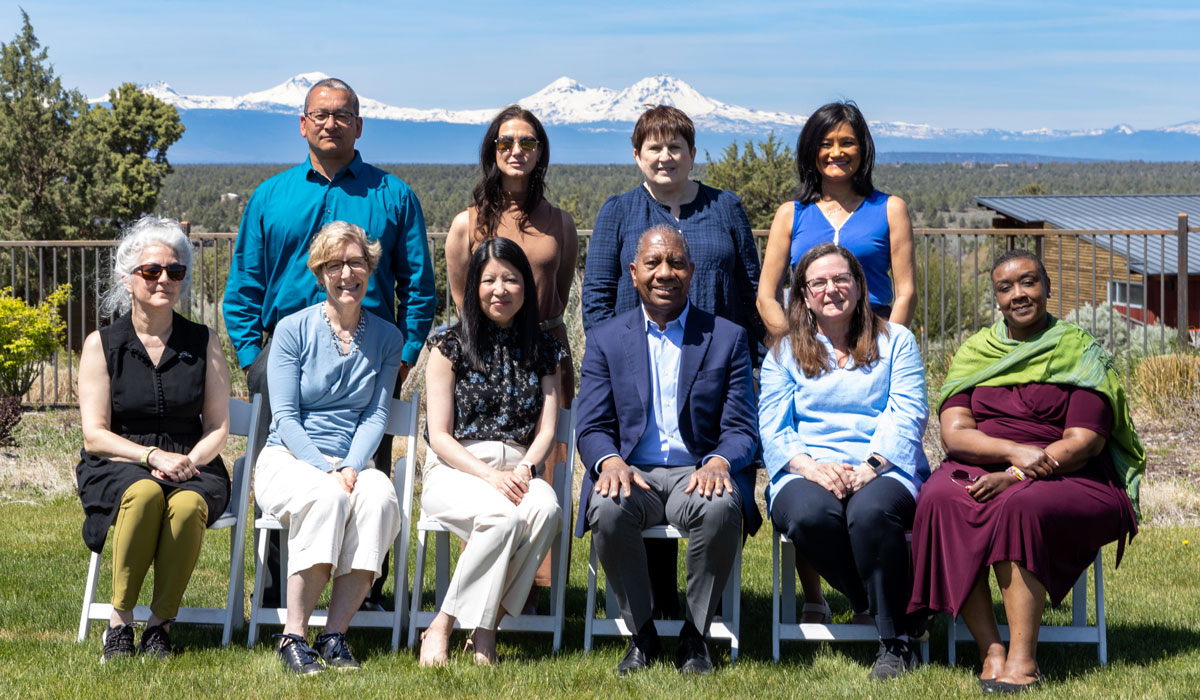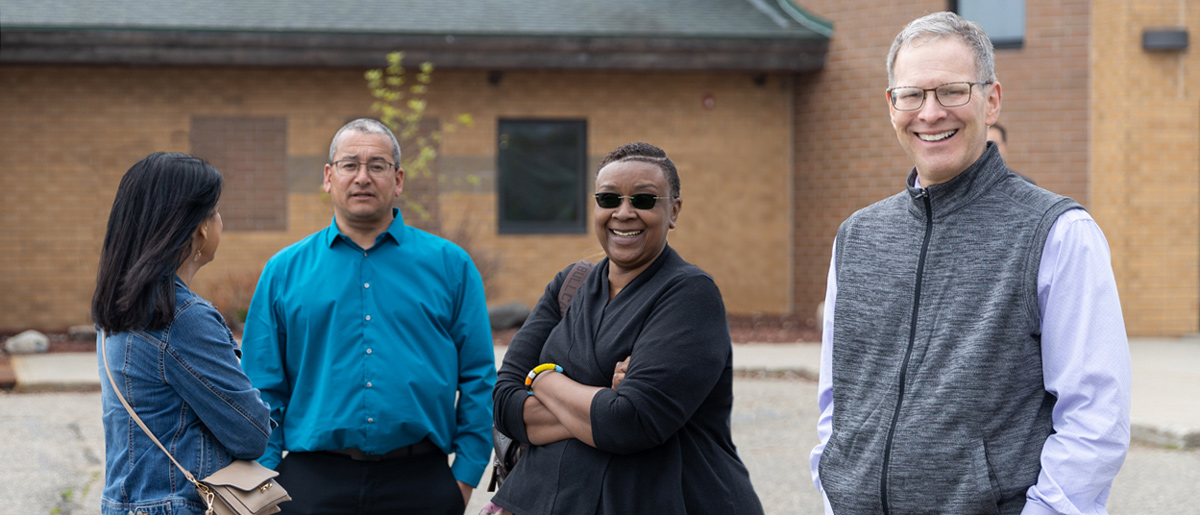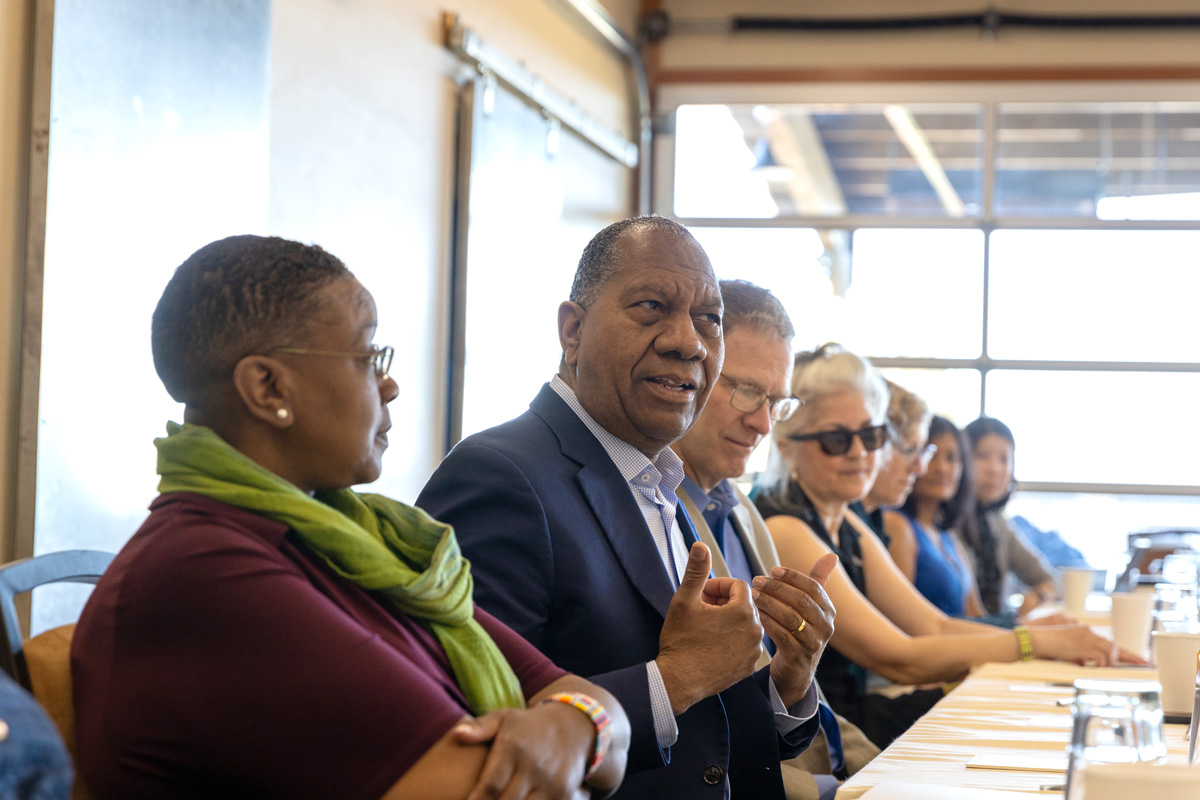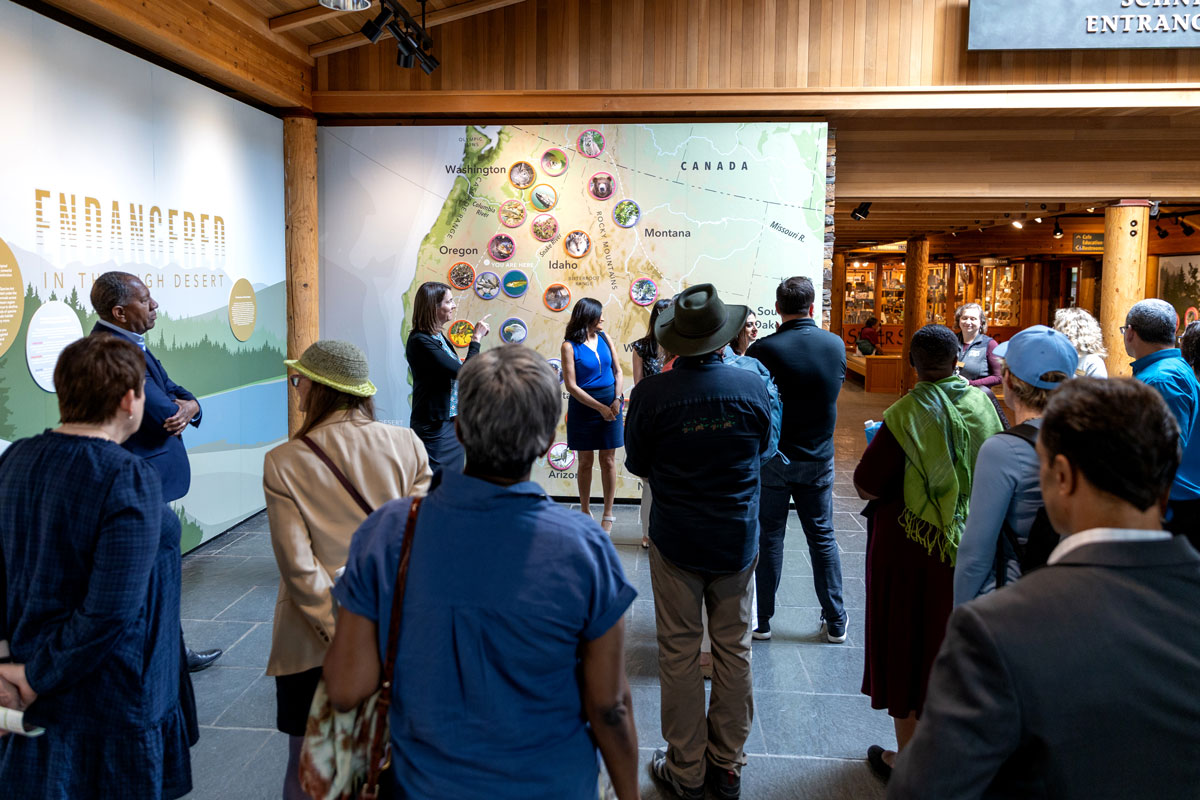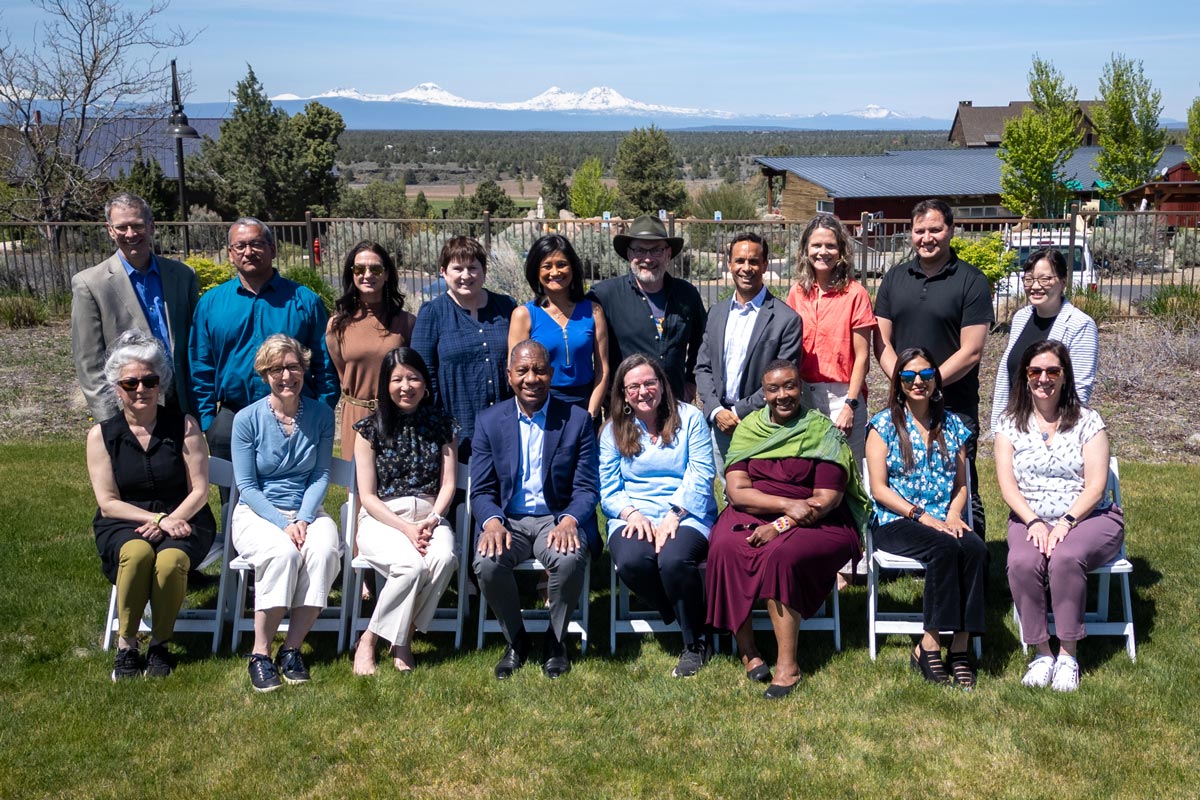1 | BOARDS CAN HELP ALIGN YOUR WORK WITH YOUR VALUES.
Dr. Duane Carter, board chair, and I partnered with a team of staff members in the depths of the pandemic to reimagine and refresh our foundation’s values. Our JEDI journey helped us dig deep and find the right alignment between our work and values, as evident in this blog from Program Officer John Fetzer. This is important because an organization’s values have the potential to be more than platitudes on a website. Our foundation’s shared values of social justice, courage, and heart, for example, help us stay focused on our JEDI efforts despite any backlash that may come.
2 | BOARD CULTURE CAN GROW STRONGER THROUGH JEDI LEARNING, SHARING, AND IMPLEMENTING.
A board culture of trust, common purpose, and shared humanity increases the capacity of board and staff to engage in justice-centered work. Fundamentally, this involves saying the real stuff out loud and showing up with heart, including in the boardroom. This blog from JEDI Director Margie Jo Eun Joo Andreason provides further insight into that journey.
3 | FOR JEDI WORK, BOARDS CAN NORMALIZE THE DISCOMFORT NEEDED FOR GROWTH.
There’s no getting around it. We need to move beyond our comfort zones to grow into deeper understanding of what justice is and how to fund it. But the discomfort can be a good and healthy thing, and it’s important to see how. A blog from Program Officer Christianne Lind describes how she’s normalized the experience of it. Although her insights come from a staff perspective, they also apply to board perspectives.
4 | BOARD AND STAFF TOGETHER CAN WORK THROUGH FEARS AND LIVED EXPERIENCES.
To relate with each other authentically, we have to face fears and be willing to share and learn about each other’s lived experiences. Board chair Dr. Duane Carter was trusting enough to share his lived experience of JEDI not only with us but also with our constituents through a blog about his life growing up in Duluth and his career with the Minneapolis Federal Reserve.
5 | A FOUNDATION BOARD CAN RECKON WITH THE ORIGINS OF ITS WEALTH.
History plays an outsized role because work to advance justice is about making up for disparities and abuses that continue in the present. This often includes the origins of a foundation’s wealth. It’s important to face, acknowledge, and repair. Not long ago, I wrote about this as it applies to the wealth of our foundation’s founder, a descendent of the railroad entrepreneur J.J. Hill, in regard to Indigenous communities.
